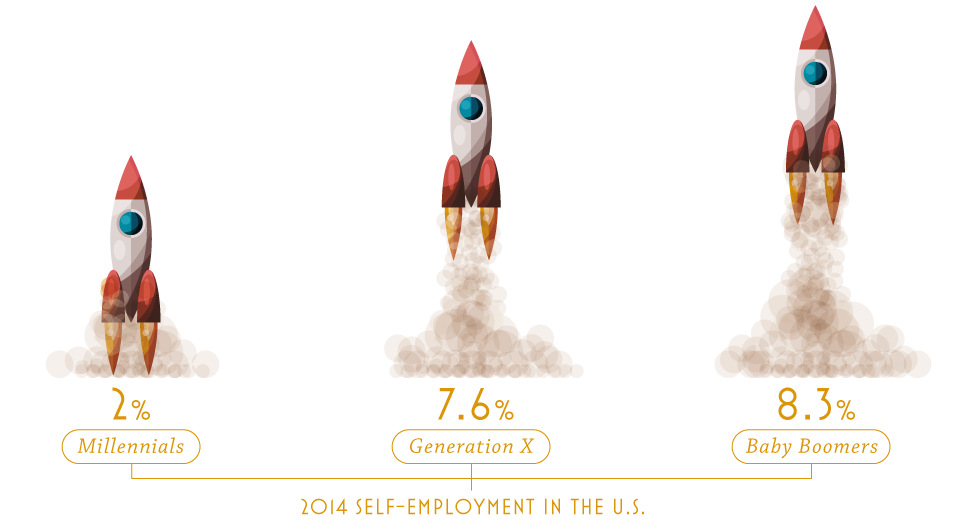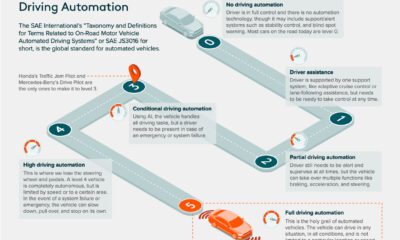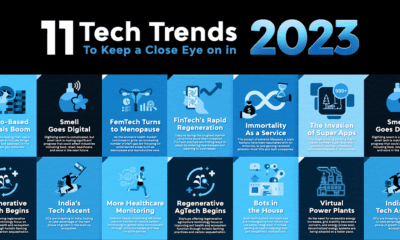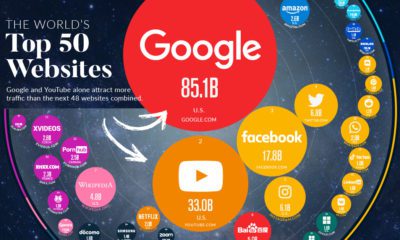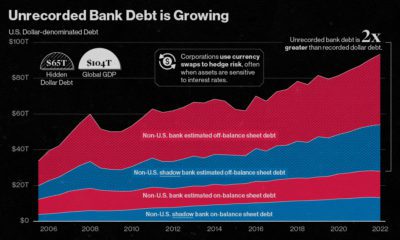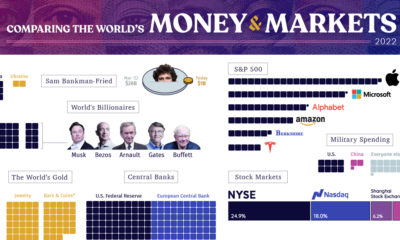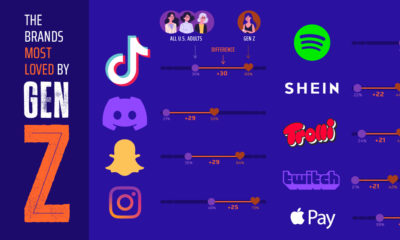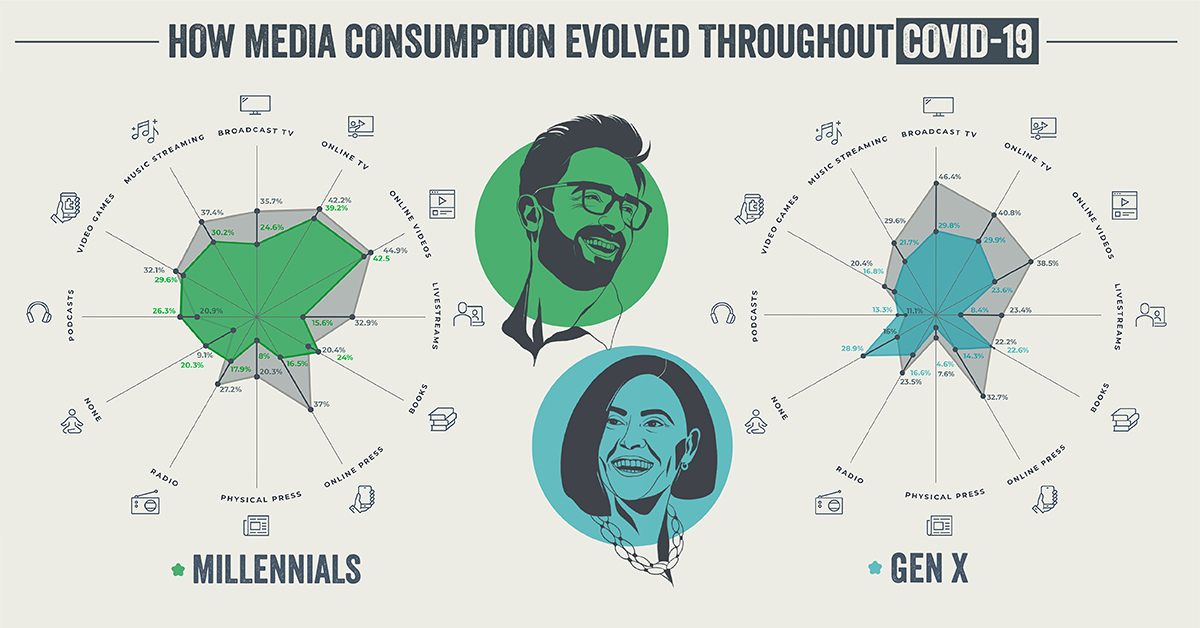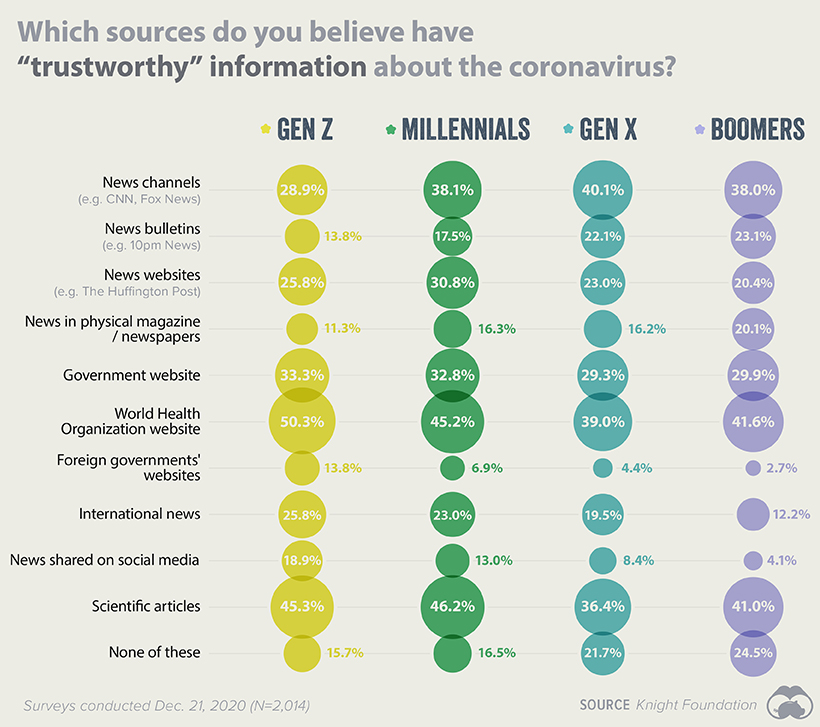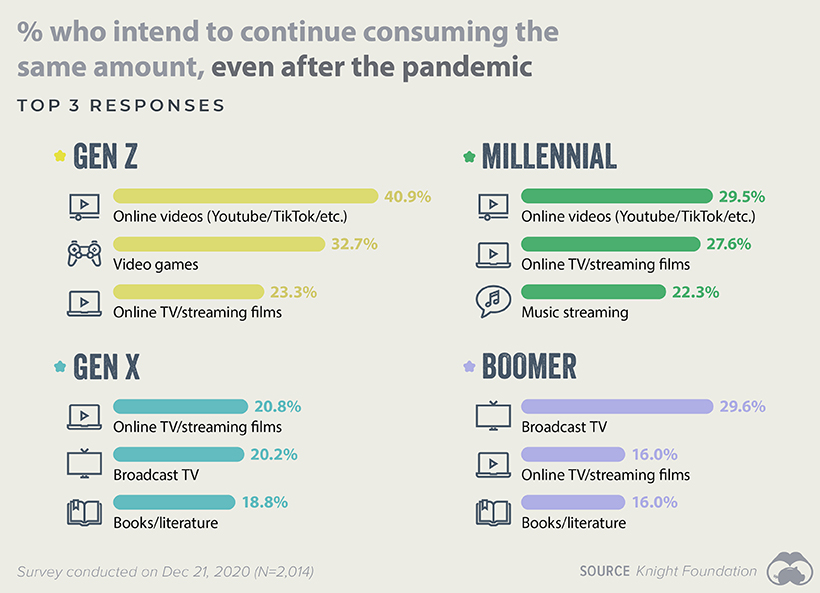Millennials clearly value entrepreneurship, and 67% of this group says that their goals involve eventually starting a business. Statistics show that millennials are always “on”, motivated to make a difference, and consider flexible hours to be a key to boosting productivity. Unfortunately, millennials do not necessarily walk the walk – yet, anyways. In 2014, only 2% of millennials in the U.S. were self-employed, compared to 7.6% and 8.3% for Gen X and Boomers respectively. This is partly understandable, since millennials are younger and less financially established. However, the situation is worse than one would think. For example, most millennials have less than $1,000 in savings, and many have paralyzing amounts of student debt, rising debt delinquencies, stagnating household income, and a fear of failure.
Are Millennials More Entrepreneurial Than Past Generations?
Today’s infographic from Online MBA Page shows statistics on entrepreneurship for America’s most interesting generation.
It appears that a confluence of factors is set to eventually make millennials the most entrepreneurial generation ever.
The proliferation of technology, the growth in available private startup capital, and the millennial mindset are all things that should help enable a shift to entrepreneurship. All millennials have to do is take advantage of the circumstances around them.
The challenge? Between 2004 and 2014, the average balance size held by student debt borrowers increased 77%, while the amount of student borrowers increased 89%. Meanwhile, home ownership for people aged 25-34 has decreased 10% from 2004-2015, and more Americans aged 25-34 say that “fear of failure” is preventing them from owning their own businesses.
In other words, the financial headwinds that millennials are facing are real. Understandably, it’s difficult to take on the risk of starting a business when living paycheck to paycheck, or when an ugly student loan is sitting on the personal balance sheet.
With a questionable macroeconomic outlook and central banks painted into a corner, it’s hard to see how this situation will be resolved anytime soon. If and when it does, look for many of the previously “reluctant” millennials to take advantage and finally hand in resignations to their current career tracks.
on Media consumption spiked in the early days of the COVID-19 outbreak as Americans actively sought information and entertainment while at home. Whether this changed over the course of 2020 remains unclear, however. To dive deeper into the issue, this infographic explores each generation’s shifts in media consumption habits as the pandemic wore on. Further below, we’ll also examine which media sources Americans deemed to be the most trustworthy, and why consumption habits may have changed for good.
Changes in American Media Consumption, by Generation
The data in this infographic comes from two surveys conducted by Global Web Index (GWI). The first was completed in April 2020 (N=2,337) and asked participants a series of questions regarding media consumption during COVID-19. To see how consumption had changed by the end of the year, the John S. and James L. Knight Foundation commissioned GWI to complete a follow-up survey in December 2020 (N=2,014). The following tables provide a summary of the results.
Gen Z
Unsurprisingly, a significant percentage of Gen Z reported an increase in digital media consumption in April 2020 in comparison to pre-pandemic habits. This bump was driven by higher use of online videos, video games, and online TV/streaming films. By December 2020, these media categories became even more popular with this cohort. Most notably, podcasts saw the highest increase, jumping almost 15% by the end of the year. The popularity of traditional outlets like broadcast TV and radio declined from their April 2020 highs, though they are still up relative to pre-pandemic levels for Gen Z survey respondents.
Millennials
Results from the December 2020 survey show that Millennials trimmed their media consumption from earlier in the year. This was most apparent in news outlets (online and physical press), which saw double digit declines in popularity relative to April. Books and podcasts were the only two categories to capture more interest from Millennials over the time period. It’s also worth noting that the percentage of respondents who said “none” for media consumption rose to 20.3%, up significantly from 9.1% in April. Possible factors for the increase in “none” responses include easing government restrictions and a return to more normal work schedules.
Gen X
The media consumption habits of Gen X developed similarly to Millennials over the year. Broadcast TV and online press saw the largest declines over the time period, while once again, podcasts and books were the only two categories to capture more interest relative to April. The percentage of respondents reporting “none” rose to 28.9%—a slightly higher share than that of Millennials.
Boomers
Media consumption trends among Baby Boomers were mixed, with some categories increasing and others decreasing since April. Broadcast TV saw the biggest decline in usage of all media types, but remained the most popular category for this cohort. Boomers also had the largest share of “none” respondents in both studies (23.0% in April and 31.0% in December).
Where do Americans Go For Trustworthy News?
To learn more about American media consumption—particularly when it came to staying updated on the pandemic—survey respondents were asked to confirm which of the following sources they found trustworthy.
The deviations between each generation don’t appear to be too drastic, but there are some key takeaways from this data. For starters, Gen Z appears to be more skeptical of mainstream news channels like CNN, with only 28.9% believing them to be trustworthy. This contrasts the most with Gen X, which saw 40.1% of its respondents give news channels the thumbs up. This story is flipped when we turn to the World Health Organization (WHO). Gen Z demonstrated the highest levels of trust in information published by WHO, at 50.3% of respondents. Only 39.0% of Gen X could say the same. By far the least trustworthy source was foreign governments’ websites. This category had the lowest average approval rating across the four generations, and scored especially poor with Boomers.
The Lasting Effects of the Pandemic
Habits that were picked up during 2020 are likely to linger, even as life finally returns to normal. To find out what’s changed, respondents were asked which categories of media they expected to continue consuming in elevated amounts. The chart below shows each generation’s top three responses.
Note that the top three for both Gen Z and Millennials are all digital and online categories (video games can be played offline, but the majority of popular titles are online). This contrasts with the preferences of Gen X and Boomers, who appear to be sticking with more traditional outlets in broadcast TV and books. With consumption habits of younger and older Americans moving in opposite directions, advertisers and media companies will likely need a clear understanding of their target audiences in order to be successful.

